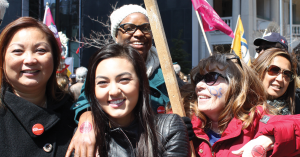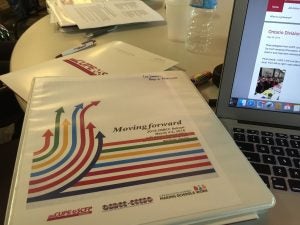Minimum Wages are the lowest wage employers can legally pay workers according to legislation or contract. Minimum wages were first introduced in Canada in 1918 to protect female workers in certain jobs. At the time, unions felt they could more effectively ensure adequate wages for men, but women were largely unorganized and so more easily exploited.
In Canada, hourly minimum wages range from a low of $10.40 in British Columbia to $13 in Nunavut. Minimum wages have not kept pace with inflation. The average remains below what it was in 1976, after adjusting for inflation. One in 14 workers receive only the minimum wage, with women, young, racialized and part-time workers much more likely to be paid the minimum wage.
Fair Wages are minimum wage rates for specific occupations. They must be paid by contractors doing work for governments with fair wage policies. These policies generally apply to construction, trades and sometimes cleaning and security workers, and are often tied to union wage rates. They’re intended to ensure contractors pay decent wages on government contracts instead of slashing wages and ben efits.
efits.
The City of Toronto introduced the first fair wage policy in 1893, before minimum wages existed. Since then he federal government, British Columbia, Saskatchewan, Manitoba, Ontario, New Brunswick, the Yukon and a number of municipalities have adopted (and sometimes subsequently repealed) fair wage policies.
A Living Wage is the wage needed to provide the minimum income necessary to pay for basic needs based on the cost of living in a specific community. Calculations of living wages vary significantly: from about $14 an hour in some communities to just over $20 in Metro Vancouver and Yellowknife. Living wages rely on public and private employers voluntarily agreeing to pay them.
At CUPE’s 2015 National Convention, delegates passed a resolution urging our union to push for living wages as the minimum wage across Canada. The resolution calls on members to support living wage campaigns, and to work towards bargaining a living wage for all members. CUPE’s Strategic Directions also sets a goal of achieving a minimum $19/hour wage for all members by the end of 2017.
From CUPE.CA









